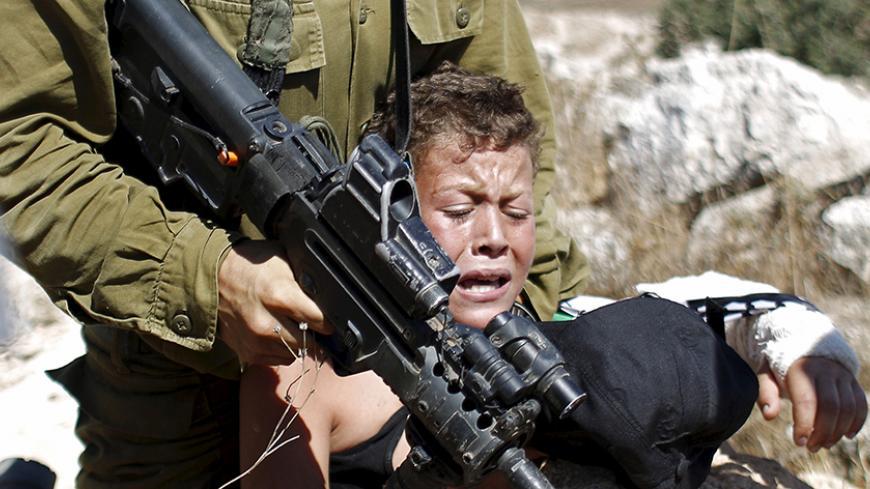The Israel-Palestine conflict — although I try to refrain from calling it a “conflict,” as “genocide” is a far more adequate term — is not a religious issue. If the roles were reversed, and it was an oppressive Muslim nation attacking a smaller, weaker Jewish nation, I would stand in solidarity with those oppressed Jewish peoples. Although religion has long been an excuse to exterminate people groups, I would hope that with modern philosophy and intellectualism, that that line of thinking would die out. It hurts when I’m so often proven wrong.
On a more contemporary note, it similarly pains me every time I read an article or hear a quote from a politician that insinuates that the genocide happening in Palestine is a complicated issue that requires an international relations degree or a doctorate in political science.
If my fifteen-year-old sister can understand the history and gravity of this genocide, so can you.
The current conflict is really quite black and white: Israel is a nation ranked 18th globally in military firepower, 25th globally in overall economic prowess, and 3rd globally in military spending per capita. They have not only been colonizing and terrorizing Palestine, a poverty-stricken nation with no formal military or government for the past several decades, but have also been relentlessly bombing Palestine for the past month under the guise of self-defense after Hamas, a Palestinian militant group, carried out a terrorist attack against Israeli civilians on Oct. 7.
In the immediate aftermath of the fateful Oct. 7 attack, it was reasonable for people to empathize with Israel after an estimated 1,200 of its citizens were mercilessly killed and 240 were kidnapped by Hamas. But Israel’s response to this terrorist attack has long surpassed brutal. The world’s complacency in this continuous act of terrorism and genocide will be remembered long after we’re gone as one of the greatest humanitarian failures of human history.
In less than one month since Hamas’ initial attack, Israel has slaughtered over 10,000 Palestinians, almost half of which have been children. The fact of the matter is that there are other ways to eliminate Hamas, if that really is the sole intent of Prime Minister Netanyahu, with minimal civilian casualties. With a military and intelligence branch as powerful as Israel’s, their special operations units should be one of the most advanced in the world, capable of weeding out and selectively targeting militants. And yet, for some reason, this isn’t the approach Israel’s choosing to take. It’s suspicious to say the least.
Supporters of Israel will relentlessly cite the hostages that Hamas is still holding. Although I feel great empathy for those families whose loved ones are still being held captive, it has become blatantly obvious that retrieving those hostages is not Netanyahu’s main objective. If it was, he would have accepted the prisoner-hostage trade deal proposed in late October. His failure as an elected official was reflected as family members of the hostages gathered in the streets in Tel Aviv to protest his inaction. Netanyahu knows that if the hostages are returned, he won’t have an excuse to obliterate the entirety of Palestine.
As videos show the IDF bombing hospitals, schools, refugee camps, ambulances and schools, destroying families and dismembering children, my hope for humanity evaporates. As Biden announces undying support for the Israeli government solely due to the fact that they are the United States’ strongest ally in the Middle East, my faith in American democracy crumbles. As Zionists ask me “it’s sad, but what else are they supposed to do?” about their government killing entire families in a single blast, my faith in an empathetic humanity dissipates. As my peers naively and unabashedly support a nation whose sole objective is to commit genocide, I grow numb.
To me and others who are a part of the Pro-Palestine movement at USC, the distinction between the Jewish religion and the Zionist movement are separate entities. When I criticize the Israeli government, I do not criticize the Jewish religion. I have met people of the Jewish faith who have claimed that Zionism both is and isn’t an integral part of the religion. But regardless about the credence of Zionism, it is an indisputable fact that the Palestinian peoples inhabited the land that is now Israel-Palestine for centuries before the influx of Jewish refugees in 1948. It is also an indisputable fact that Israel then colonized more than half of what was meant to be set aside as Palestine in the decades following the division of the land, forcing hundreds of thousands of Palestinians out of their homes during the Nakba and beyond.
I am not sure when condemning genocide became a politicized opinion — it should be black and white. Watching the continuous influx of videos of wailing parents and shell-shocked infants in Gaza at the same time that I see affluent people in America making this issue about themselves has been one of the lowest points of my life. I implore those, especially the wealthy and privileged at USC, who struggle to remove the spotlight from themselves to move it to those who live every day not knowing if they’ll make it to the next. Condemning the Israeli government as someone of the Jewish faith doesn’t reflect badly on you as a person, rather, it shows strength in being able to receive criticism.
Those who support Israel are wrong. Those who refuse to “pick a side” are wrong. Those who refrain from uttering the word “ceasefire” are wrong. Those who ignorantly equate the loss on both sides are wrong. This issue of genocide is absolutely black and white.
There is no justification for the atrocities that Israel has committed. This is not an eye for an eye, but an eye for an entire generation of Palestinians.
The views expressed in opinion pieces do not represent the views of Glimpse from the Globe or its editorial team.






